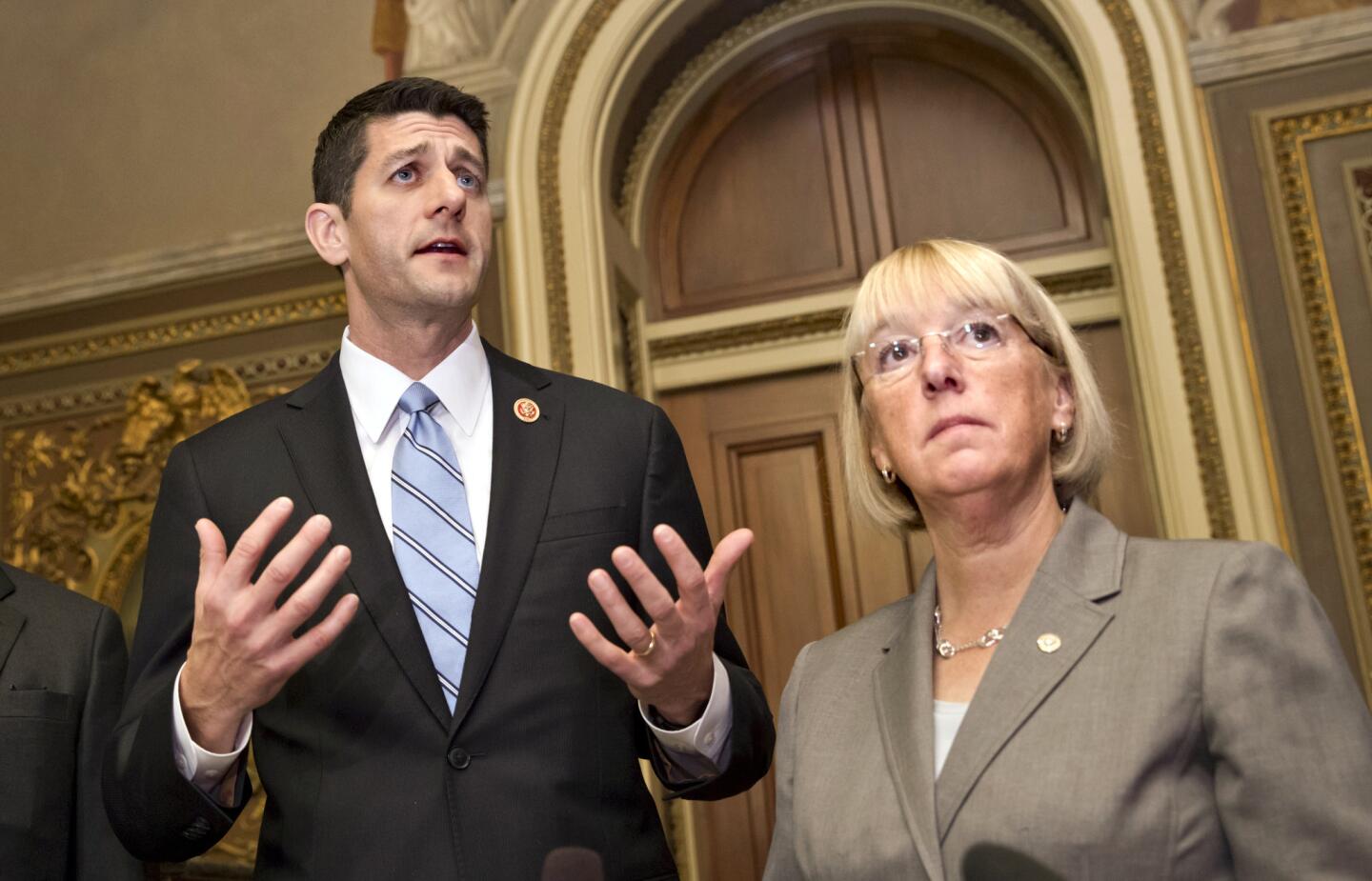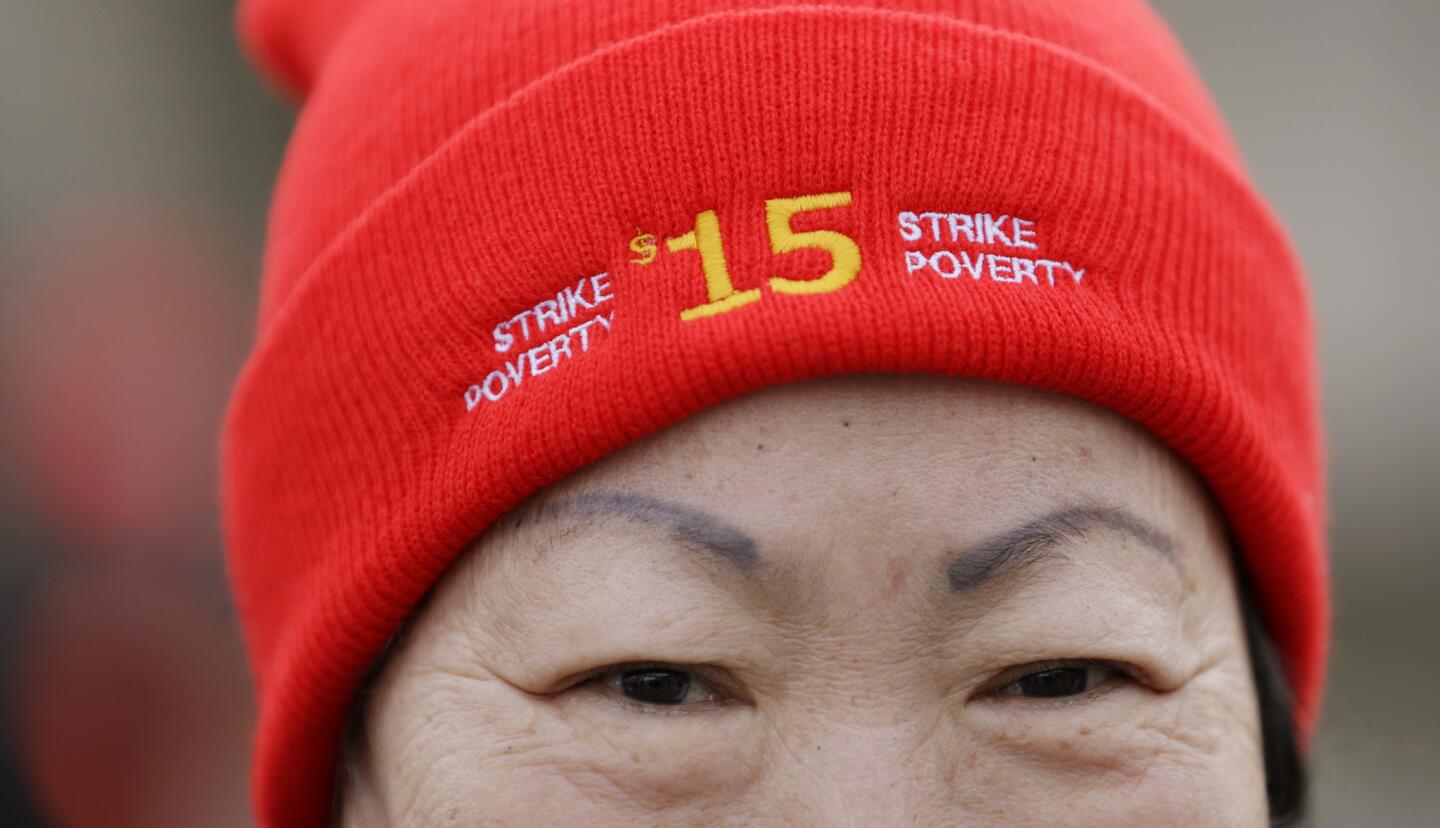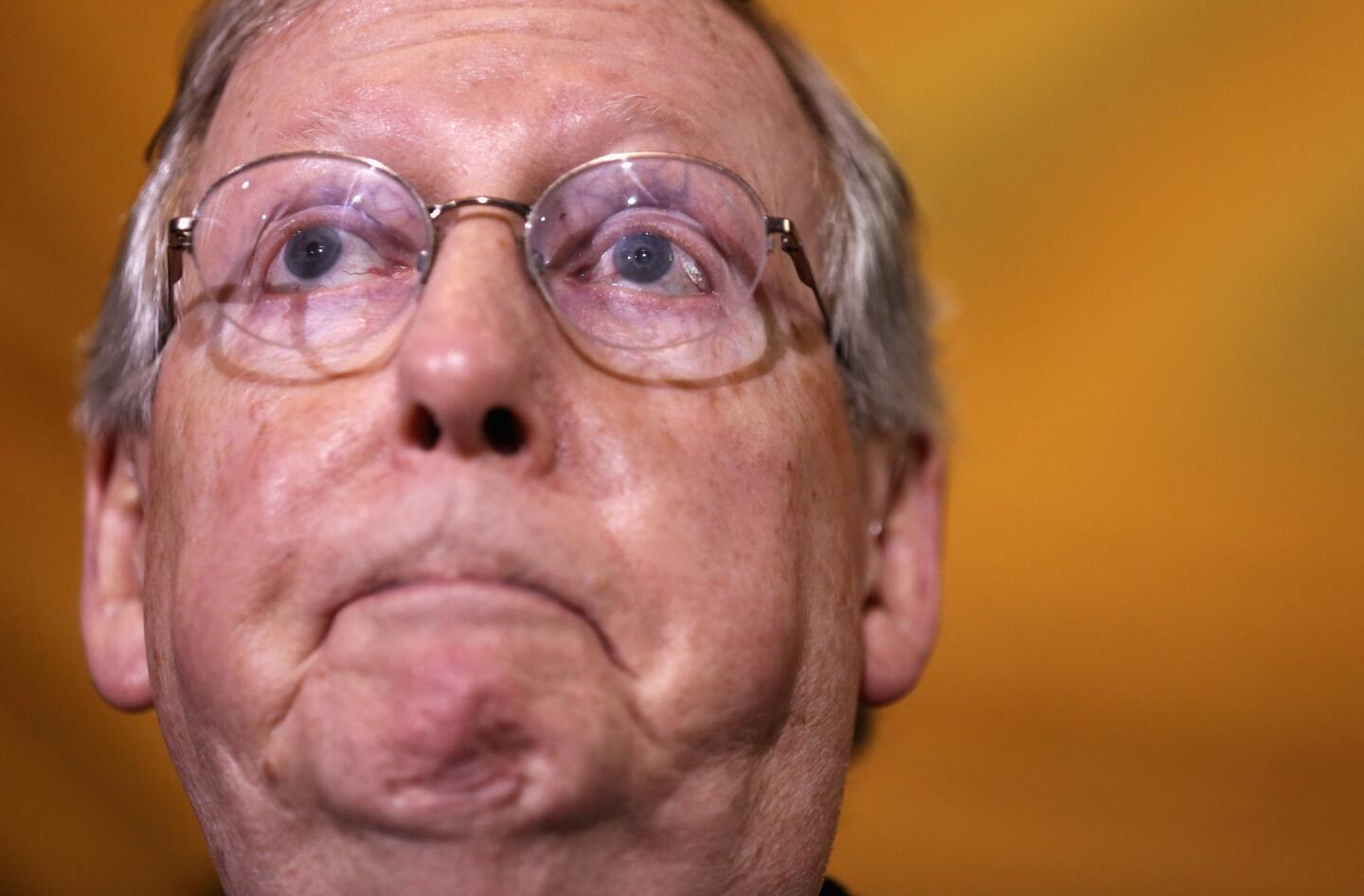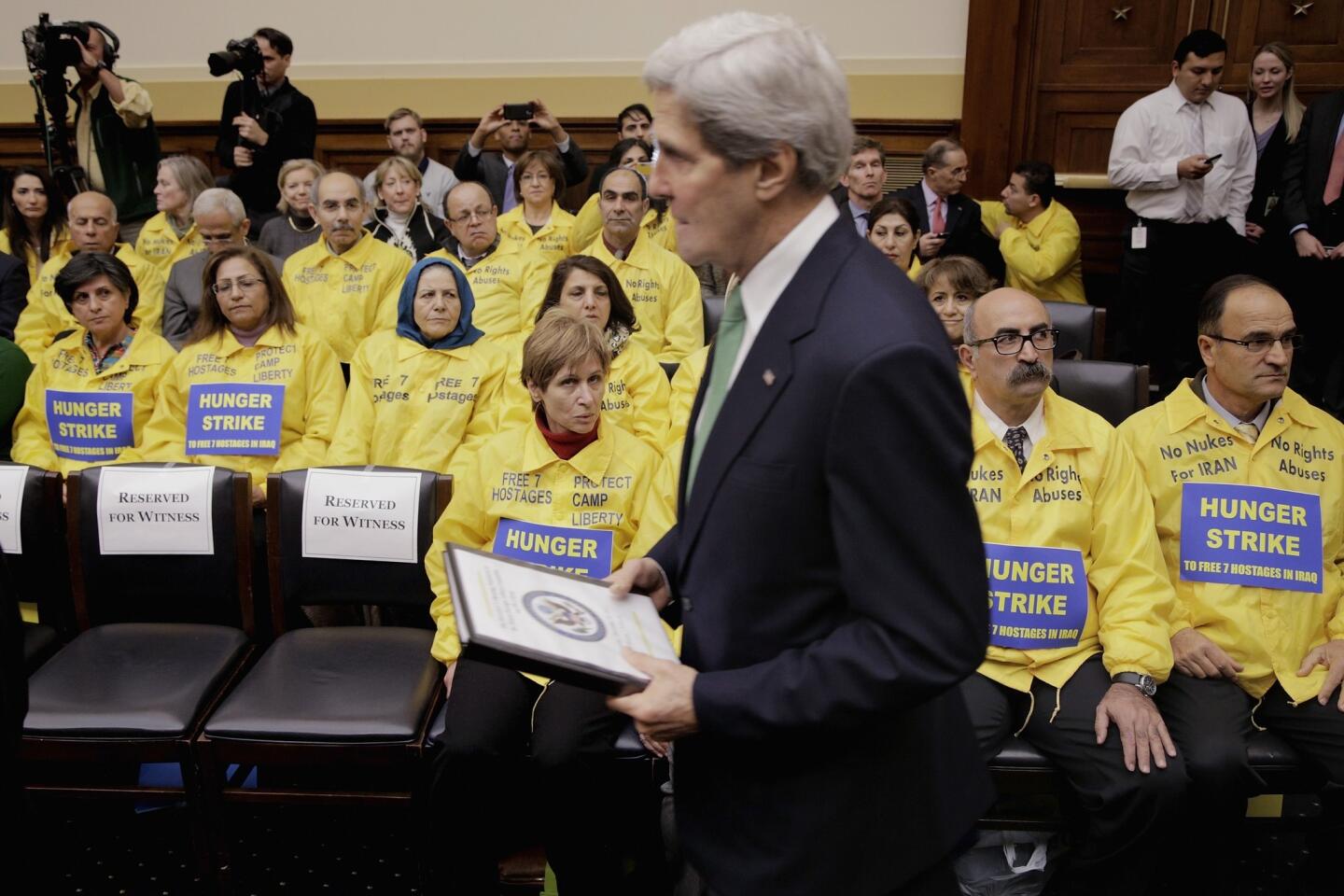2014 politics: A look ahead

Republicans and Democrats may have reached a budget compromise in 2013, but they still must settle on how those government funds will be allocated. Both the House and Senate are faced with Jan. 15 deadlines to pass an appropriations deal. The government has recently been funded through continuing resolutions, which maintain preexisting spending levels. Above, House Budget Committee Chairman Paul D. Ryan (R-Wis.) and Senate Budget Committee Chairwoman Patty Murray (D-Wash.). (J. Scott Applewhite / Associated Press)
2013 brought the beginning of President Obama’s second term, the government shutdown and the mostly botched debut of the Affordable Care Act. Now, a gaze into the crystal ball for a look at some of the things the new year may bring in Washington.
Read more: Debate over the Affordable Care Act. Timeline: Politics in 2013.

The moment 2014 begins, private coverage obtained from Affordable Care Act exchanges begins, along with expansions to Medicaid coverage in 25 states and Washington, D.C., and the last batch of consumer protections, including the provision against discrimination due to prior conditions. Then, on March 31, the delayed insurance mandate begins, charging a penalty to those without a plan by that deadline. In October, insurance companies will no longer be able to renew plans that don’t fit the standards of the Affordable Care Act. Amid all of these dates, continued fighting between President Obama and Republicans over the healthcare law’s provisions and rollout is all but inevitable. (Joe Raedle / Getty Images)

At the start of 2014, the minimum wage in 13 states increases. In New York, New Jersey, Connecticut and Rhode Island, it’s the result of legislative and voter action, while in Arizona, Colorado, Florida, Missouri, Montana, Ohio, Oregon, Vermont and Washington, the increases are the result of cost-of-living adjustments. But the federal minimum wage remains at $7.25 per hour. President Obama and Democrats have called for legislation to increase it to $10.10 by 2015, and will renew that effort in 2014. Republicans largely oppose a federal increase in wages. Above, Sun Benjamin, a home healthcare worker, wears a cap advocating a $15 minimum wage at a protest near Seattle. (Elaine Thompson / Associated Press)

2014 is a pivotal year for governorships across the country. Democrat Wendy Davis, above, was propelled into political stardom with her 2013 filibuster against a Texas law limiting access to abortion, and has turned that popularity into a bid to become the state’s first Democratic governor since 1995. And in Wisconsin, GOP hero Gov. Scott Walker, who has earned acclaim from the right for his tough stance on public labor unions, will face reelection for the first time. In total, 20 Republicans and 10 Democrats have already announced their reelection bids or are eligible for another term in office come election day, Nov. 4. (LM Otero / Associated Press)
Advertisement

After bipartisan reform agreed upon by the Senate foundered in the House, and subsequent attempts by Senate Democrats and a bipartisan House group similarly stumbled, immigration reform fell to the back burner in 2013. But the issue is likely to return with renewed fervor in 2014, with House leadership on both sides of the aisle saying there’s a chance for progress in the new year as the pressure for Washington to enact comprehensive reforms grows. Above, activists gather on Capitol Hill. (J. Scott Applewhite / Associated Press)

Senate Minority Leader Mitch McConnell (R-Ky.), above, will face a primary challenger from the right wing of the GOP before the 2014 general election. McConnell will compete against Matt Bevin, a businessman with support from the tea party, in the May 20 Kentucky Republican Senate primary, the most high-profile challenge to the party’s establishment of the year. McConnell held a strong lead over Bevin in recent polling. If McConnell wins, he will face Kentucky Secretary of State Alison Lundergan Grimes in the general election. Grimes is neck and neck with McConnell in the latest polls. Democrats are particularly set on defeating McConnell, who has been a key leader in Republican opposition to President Obama’s agenda. (Alex Wong / Getty Images)

A White House deal with Iran over its nuclear program, which would loosen economic sanctions on the country in exchange for halting much of its work at major reactors, has come under fire from Republicans and Democrats alike for allegedly giving Iran too much leverage in future talks. Some in Congress are calling for additional sanctions to be levied against Iran in 2014, a move Iran says would prompt it to accelerate its nuclear program. Secretary of State John Kerry, above, has asked Congress to hold off on such sanctions and give diplomacy a chance to work. (T.J. Kirkpatrick / Getty Images)







